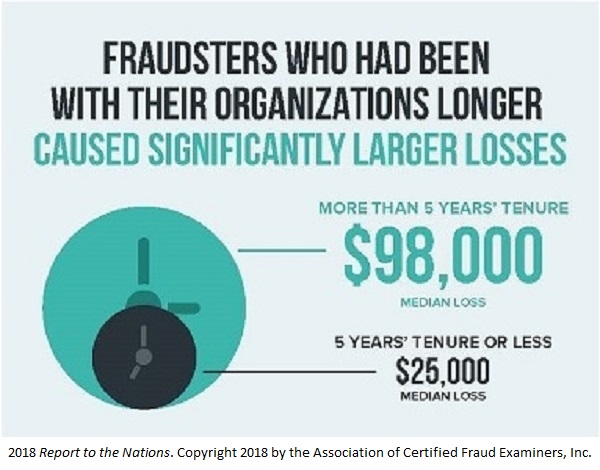Over ten years, a former University of Georgia employee stole over $1.3 million from the school's Greek Life Office (GLO). How did this happen, and why did it take so long for someone to notice?
Trust Without Oversight
Excerpts from the Atlanta Journal-Constitution provide an overview of the situation:
"Interviews with GLO employees determined that ... (the administrative associate) was a longtime trusted employee who had almost complete control over all financial activity at GLO, without any oversight or independent review of these activities. (emphasis mine)
"In an internal memo detailing their findings, university officials wrote that ... (both the director and assistant director) ... "failed to provide proper oversight," which resulted in "an environment that allowed for the misappropriation of funds without being detected for an extended period.
"While going through the woman's records, it was determined ... had seven vehicles in her name, including a Mercedes she purchased for her boyfriend the month before her death. It was also revealed she was an avid buyer of lottery tickets."
How did this happen?
The circumstances described above are a case of occupational fraud1 similar to that perpetrated in St. Louis Shenanigans. An unsupervised employee with access saw an opportunity to commit fraud, probably starting small and possibly being pressured by a gambling problem.
University program directors/supervisors are often required to do more with less. They can be spread thin by daily responsibilities and problems. As a result, it can be easy to neglect internal controls (checks and balances) and allow one person to do too much.
This neglect doesn't automatically or immediately result in fraud. Most people want to do their job well or fear adverse consequences. But it does open a window of opportunity should a person have the pressure and rationalization to act (as described in Fraud Triangle Primer).
 Frauds caused by longtime employees tend to be larger because they have risen to higher
levels of authority and have more access with increased experience.
Frauds caused by longtime employees tend to be larger because they have risen to higher
levels of authority and have more access with increased experience.
The ACFE reports that the median loss caused by someone with more than five years of tenure is almost four times as large as fraud caused by someone with five years or less.
What was missing?
What controls could have prevented the opportunity for fraud from the beginning?
What controls could have identified the fraud (caused you to notice) soon after it began?
Forthcoming posts will answer both questions.
1 The Association of Certified Fraud Examiners (ACFE) defines occupational fraud as using one's occupation for personal enrichment through the deliberate misuse or misapplication of the employing organization's resources or assets.
The Art of Noticing by Rob Walker was the inspiration for this post.

